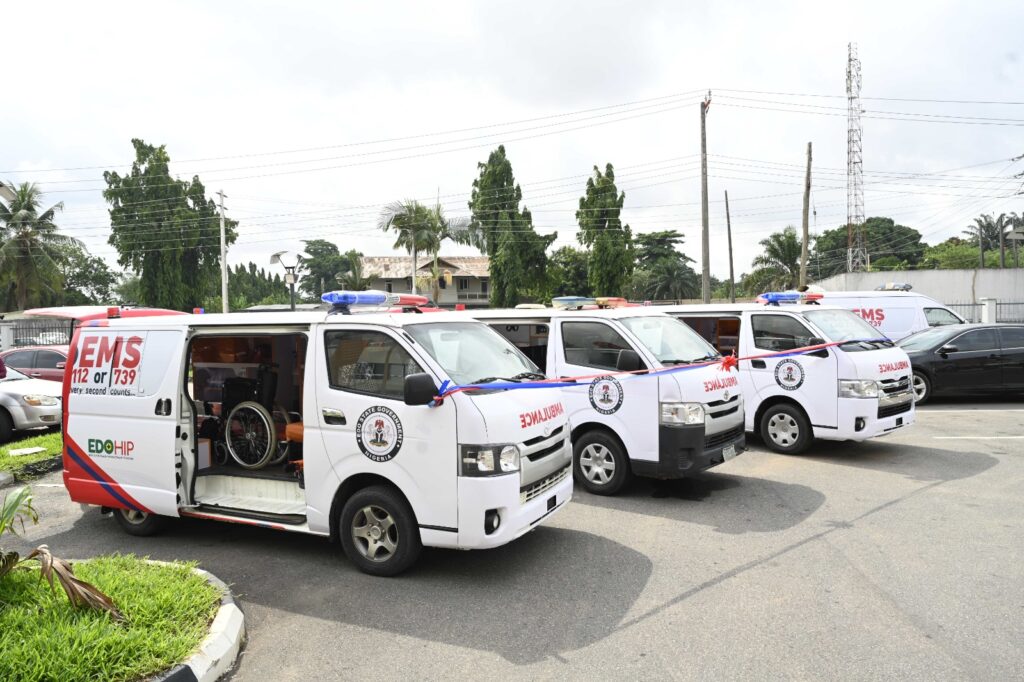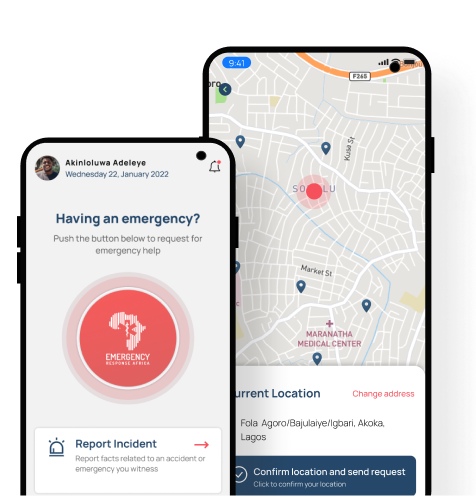Across Nigeria, both government-run and private ambulance services play critical roles in emergency response. But they operate very differently.
Some patients wait hours for a government ambulance that never comes. Others are shocked by the cost of private services they assumed were free.
In between these extremes lies a crucial question: which one should you call when it really matters?
This article breaks down the differences between private and government ambulance services, from cost and response time to medical equipment and availability.
What is a Government Ambulance Service?

A government ambulance service is a publicly funded emergency medical transport system operated by federal, state, or local health authorities. These services are often part of a broader public health initiative, aiming to make emergency medical care accessible to all, especially in underserved or low-income areas.
In Nigeria, these ambulances are typically managed through state ministries of health, public hospitals, or agencies like the Federal Road Safety Corps (FRSC), National Emergency Management Agency (NEMA), and state emergency medical services (e.g. Lagos State Ambulance Services—LASAMBUS, EdoEMS). They are commonly available via toll-free numbers like 112 or 122.
They’re often deployed for road accidents, mass casualties, disease outbreaks, or community health emergencies. Some offer basic life support (BLS), while others may lack equipment or trained paramedics due to funding constraints.
While generally free or low-cost, access can sometimes be delayed by bureaucracy, limited availability, or logistical issues, especially in high-demand areas or rural communities.
What is a Private Ambulance Service?

A private ambulance service is operated by individuals, private hospitals, or independent emergency response companies. These services are fully funded by clients or through private health insurance and are often used when speed, convenience, or specialized care are essential.
Unlike government options, private ambulances typically offer a range of care levels, from basic life support (BLS) to advanced life support (ALS), and may include paramedics, nurses, or even doctors onboard. Many also provide extra services like inter-hospital transfers, event standby coverage, and cross-border medical evacuations.
In Nigeria, examples of private ambulance services include those run by private clinics, medical transport companies, and emergency medical services like Emergency Response Africa. They usually operate through direct contact or subscription plans and often respond faster due to streamlined processes and better-equipped fleets.
However, their major limitation is cost. While they offer speed and quality, affordability may be a barrier for low-income individuals or families without insurance coverage.
Key Differences Between Private and Government Ambulance Services
Choosing the right ambulance service can be confusing—especially when time is limited and emotions run high. While both private and government ambulances aim to save lives, they differ in many ways that can impact your experience during an emergency.
To help you make an informed decision, here’s how private and government ambulance services compare across key factors:
| Feature | Private Ambulance Service | Government Ambulance Service |
| Ownership | Privately owned by hospitals, individuals, or emergency service companies | Operated by federal, state, or local government agencies |
| Funding Source | Paid by clients, health insurance, or subscription plans | Funded through taxes and public health budgets |
| Response Time | Typically faster due to dedicated dispatch and less red tape | May be delayed by high demand, staff shortages, or poor coordination |
| Availability | Widely available in urban areas; 24/7 services; accepts scheduled requests | Often focused on emergencies; limited availability in rural or congested zones |
| Medical Staff | Includes paramedics, nurses, and sometimes doctors; trained professionals onboard | Basic EMTs or health workers; staff availability may vary |
| Equipment | Frequently equipped with Advanced Life Support (ALS) tools | Some provide Basic Life Support (BLS); others lack modern equipment |
| Service Type | Offers emergency response, inter-hospital transfer, standby coverage, and international evacuation | Primarily focused on emergency rescue and public health crises |
| Cost | Can be expensive per trip | Mostly free or subsidized by the government |
| Accessibility | Access via direct call, toll-free numbers, or mobile apps (e.g., Emergency Response Africa app) | Access via general toll-free numbers like 112 or 122 |
| Suitability | Ideal when time, care quality, and flexibility are top priorities | Best when cost is a major concern and private options aren’t available |
When to Use Government Ambulance Services
Government ambulances are essential, especially for those prioritizing affordability or living in states where it’s available. Here are scenarios where a government ambulance may be the most appropriate choice:
During Mass Casualty or Public Health Events
In large-scale emergencies like floods, building collapses, epidemics, or road crashes, state and federal emergency agencies (like NEMA, FRSC, or LASAMBUS) often deploy multiple ambulances at once. These teams are experienced in managing crowd control, multiple injuries, and coordination with public hospitals.
If Cost Is a Primary Concern
Government ambulance services are generally free or heavily subsidized, making them a practical option for people who can’t afford private medical transport. For families without insurance or access to emergency funds, calling a government ambulance through toll-free numbers like 112 or 122 ensures basic emergency care without immediate financial pressure.
When Referred from a Public Hospital
If you’re already receiving care at a government hospital, the referral process may include ambulance transport for further treatment or transfer to a specialist facility. These services are typically integrated into the hospital system, making coordination easier within the public health network.
For Routine Public Health Outreach
Some government EMS programs offer community health services like mobile clinics or antenatal transfers, especially in states with strong primary healthcare support. While not suitable for emergencies, these services are free and important for early care.
When to Choose a Private Ambulance Over a Government One
Private ambulance services are not just for the wealthy or elite, they serve critical roles that go beyond affordability. In high-stakes emergencies where speed, specialized care, and service quality are critical, private ambulances often provide the edge that government systems may not.
When you’re unsure which service to call, the right choice often depends on the urgency of the situation, your location, and the level of care required.
Here are clear scenarios where choosing a private ambulance may be the best decision.
In Time-Sensitive Medical Emergencies
If someone is unconscious, having difficulty breathing, or experiencing a suspected heart attack or stroke, every minute matters. Private ambulances often have faster dispatch systems and dedicated response teams, allowing them to arrive sooner and begin treatment en route.
For Scheduled Medical Transfers
Need to move a patient from one hospital to another for specialist care? Private ambulance providers offer inter-hospital transfers that can be scheduled in advance. These are especially useful when the patient is stable but still requires medical supervision during transport.
When You Need Specialized Equipment or Care
Not all emergencies are the same. Some cases require ventilators, cardiac monitors, or a paramedic with advanced life support (ALS) skills. Private ambulances are more likely to be equipped for such needs, particularly when transporting critically ill patients or those with mobility challenges.
During Public Events and Gatherings
Event planners and corporate organizations often hire private ambulance services to provide on-site medical coverage during marathons, concerts, religious gatherings, or workplace health checks. These services include both standby units and on-call emergency response.
If You Live in a Poorly Covered Area
Rural or remote areas in Nigeria often experience longer wait times for government ambulances due to limited coverage or logistical delays. If your location isn’t well-served by public systems, a private provider like Emergency Response Africa (ERA) which operates across many cities in Nigeria, can be a safer and quicker alternative.
When You Want Reliable Coordination and Follow-up
Private services often offer better communication, tracking, and aftercare, including paramedic reports, coordination with receiving hospitals, and real-time updates for family members. This level of service is critical in emergencies where clear information can reduce confusion and panic.
Emergency Response Africa: The Best Private Ambulance Service Provider in Nigeria
Founded in 2019, Emergency Response Africa (ERA) offers a smart middle ground; fast, tech-enabled emergency care at affordable rates.
Through its mobile app, toll-free line (08000 2255 372), and wide partner hospital network, ERA connects people to emergency care in minutes. Whether you’re at home, on the road, or managing a workplace, ERA ensures that help is always within reach.
Are you ready to take control of your emergency plan? Contact us at contact@emergencyresponseafrica.com to subscribe or get support today.
Frequently Asked Questions
Is a Government Ambulance Free in Nigeria?
Yes, most government ambulances are free or heavily subsidized. But availability depends on the state and situation.
Do I Need Health Insurance to Use a Private Ambulance?
No. Private ambulance services accept out-of-pocket payments. Insurance may help cover costs, but it’s not required.
How Much Does a Private Ambulance Cost in Nigeria?
Costs vary by provider, distance, and level of care (e.g., Basic Life Support vs. Advanced Life Support). On average, expect to pay between ₦30,000 and ₦150,000 per trip.
Are Private Ambulances Better Equipped Than Government Ones?
Many private services offer advanced equipment and trained paramedics, especially in premium packages. Government ambulances vary in quality depending on funding and location.
Can I Trust Private Ambulance Services in Nigeria?
Yes. There are reputable private ambulance service providers in Nigeria, such as Emergency Response Africa and Flying Doctors Nigeria. These organizations provide professional care and are well-experienced in handling different kinds of emergencies.
Can I Call a Private Ambulance if the Government One Is Taking Too Long?
Yes. If the government ambulance is delayed, you can contact a private provider directly for faster support, especially in life-threatening situations.



